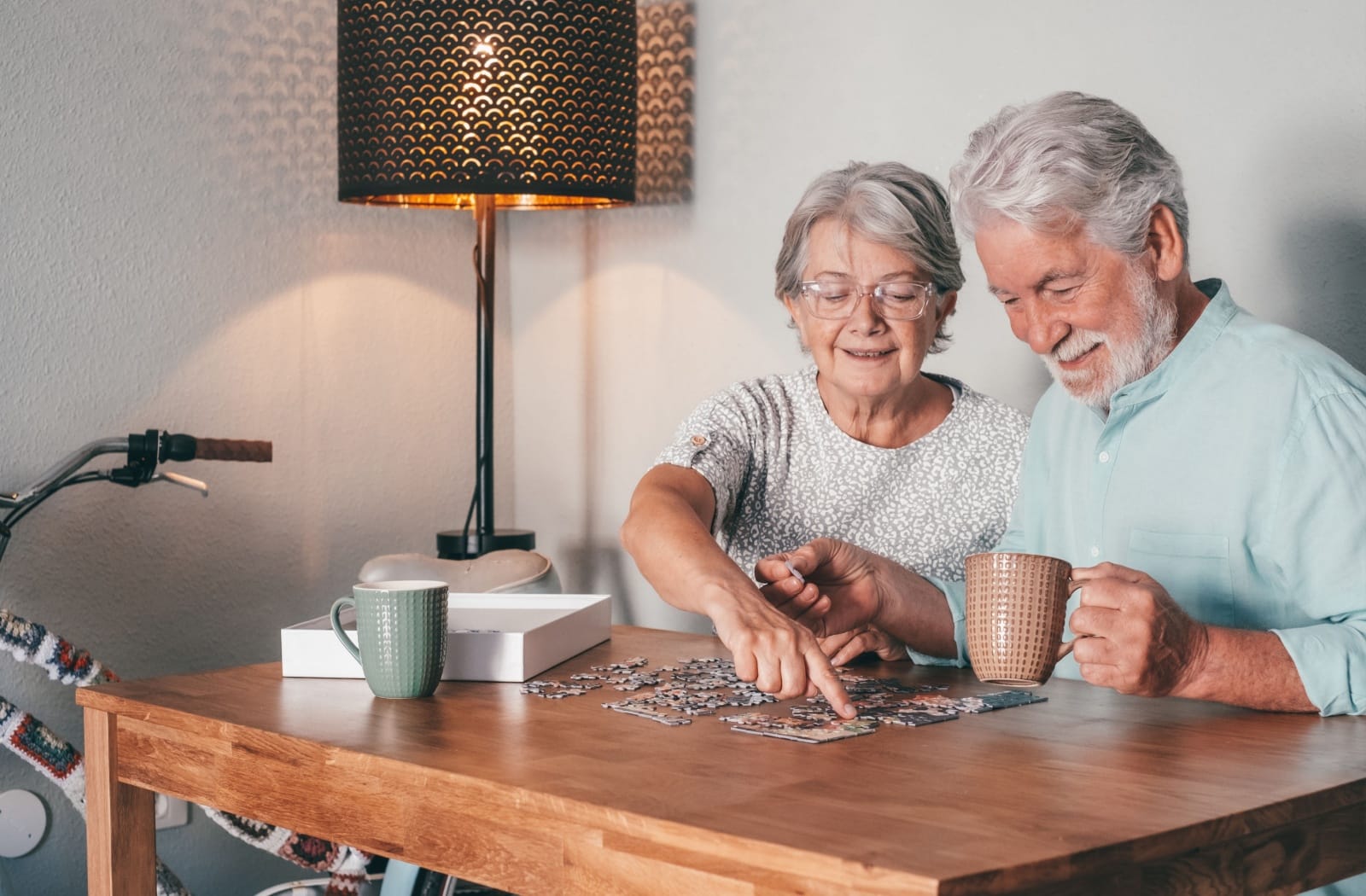Dementia is a term used to refer to the loss of memory and thinking abilities. Many Americans will experience dementia as they age. But does a dementia diagnosis mean that you can no longer live alone? While it is possible to live alone with dementia, especially in the early stages of dementia, it is important to understand the safe, secure, and stress-free memory care options available for your loved one.
Independent living may not be for everyone, and at the later stages of dementia, more support is needed. At Dogwood Forest, we offer assisted living and memory care programs to support our residents who need help managing dementia symptoms.
Signs of Dementia
The symptoms of dementia may start small but will get progressively worse over time. Because of this, it is important to see a doctor as soon as symptoms occur. Early detection of dementia means getting the best outcomes out of treatments and making better care decisions.
Dementia can affect many aspects of life including memory, communication, focus, and cognitive skills. Some common signs of dementia include:
Short-Term Memory Loss
Memory issues are a common sign of dementia. In the early stages, this can look like forgetting new information or the names of newly introduced people. As dementia progresses, short-term memory loss can look like:
- Forgetting new information, such as new names or something they just read
- Misplacing valuable or frequently used objects
- Confusion over time and place
- Struggling to plan and organize
- Reliance on memory aids or others to complete everyday tasks
Communication Problems
Communication problems become more common as dementia progresses. This can look like someone with dementia struggling to follow and join conversations or find the right words for familiar objects. Difficulties with names or recognizing familiar people can also occur. These issues can all lead to social withdrawal.
Difficulty Solving Problems and Completing Tasks
As dementia progresses, it can be more difficult with tasks. People with dementia may have more issues keeping track of bills or playing complex games. There may also be problems with finishing tasks after they have been started, or solving problems without assistance.
Personality Changes
The progression of dementia can also lead to changes in a person’s personality. Some common changes are:
- Frequent mood changes
- Increased depression, anxiety, apathy, and suspiciousness
- Social withdrawal
- Poor judgment that is out of character
Managing the Symptoms of Dementia

When living alone with dementia, it is important to take steps to practice self-care and follow treatment plans that can help slow the progress of dementia. Some strategies that our staff at Dogwood Forest of Grayson use in our Memory Care programs for residents include:
- People with dementia may struggle to eat consistently and maintain a healthy weight. Maintaining a healthy diet has been shown to help reduce the risk of developing dementia and its progression.
- There are links between physical activity and brain health. Exercise can help decrease the risk of developing dementia. While exercise cannot slow down the progression of dementia, it can help improve focus and attention.
- Just like physical exercise, mental exercise can also help individuals with dementia. Simple games like board games and crossword puzzles can help maintain memory abilities.
- Experiencing stress for long periods of time is associated with the development and progression of dementia. This means that lowering stress in individuals with dementia may help them stay in the early stages of the disease for longer.
- Having an active social life can lower stress levels and provide mental stimulation for people with dementia.
How to Make Living Alone Easier
Once a dementia diagnosis has been given, the next step is to find a care plan that will work best for you. If that care plan involves living alone it is important to plan to make the process as easy as possible.
- Routines: Having set routines or a daily planner means that someone in the earlier stages of dementia can track their daily tasks and appointments and maintain a higher level of independence.
- Maintaining Social Support: While socializing helps reduce stress, it also lets friends and family notice new dementia symptoms and medical emergencies quickly.
- Finding Help: Having a trusted friend or family member, or a professional caretaker help with daily tasks, taking medications, and going to appointments can help a person with dementia live alone for longer.
- Staying Safe: Minimizing safety risks may help a person with dementia live in their home longer. Limiting access to medications, cleaning chemicals, and appliances like stoves can all help keep the home safe.
- Making a Care Plan: Maintaining a care plan allows the person with dementia and their caretakers to monitor the progression of the dementia. This means making decisions for the individual with dementia will be easier as their symptoms get worse.
When to Consider Finding Care
There is no set time for when a person with dementia should enter a professional care facility. Professional memory care should be considered when either the dementia has progressed where it is no longer safe for the individual to live alone, or the person’s caretaker is no longer able to meet their needs.
Having a care plan for individuals with dementia is important, as it allows caretakers to identify when the time for a professional memory care home has arrived. At Dogwood Forest of Grayson, our Memory Care Plans use a science-based approach to combat the progression of dementia. Your loved one will be well cared for in our highly-rated facilities. You can contact us to learn more about whether our program is right for your situation.
